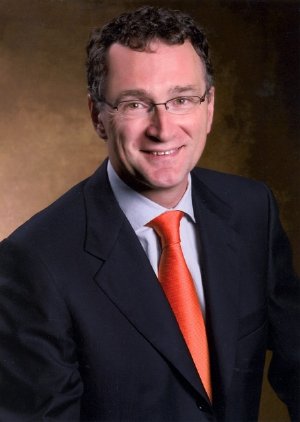Oct 9 2009
The University of Texas Medical School at Houston has established a Department of NanoMedicine and Biomedical Engineering (nBME), which will give students an opportunity to get hands-on experience in these emerging fields of medicine.
 Mauro Ferrari, Ph.D., an expert in the area of nanomedicine, was named professor and chairman of the new Department of NanoMedicine and Biomedical Engineering (nBME) at The University of Texas Medical School at Houston. Credit: The University of Texas Health Science Center at Houston
Mauro Ferrari, Ph.D., an expert in the area of nanomedicine, was named professor and chairman of the new Department of NanoMedicine and Biomedical Engineering (nBME) at The University of Texas Medical School at Houston. Credit: The University of Texas Health Science Center at Houston
Mauro Ferrari, Ph.D., an expert in the area of nanomedicine, was named professor and chairman of the new department on Sept. 1.
"This is the first department of nanomedicine in a medical school in the United States that I'm aware of," said Ferrari, who has received about $50 million in funding since moving his laboratory to The University of Texas Health Science Center at Houston in 2006.
UT Medical School at Houston students will be eligible for nBME research rotations. "They will get a chance to work with cutting edge nanotechnologies that are engineered for medical applications. They will also get to attend lectures and workshops," he said.
"Dr. Ferrari and his team will arm our medical students with the latest knowledge about drug development and therapies that they will be able to use to improve their patients' health. We are proud to be one of the first medical schools to incorporate nanomedicine into our curriculum," said Giuseppe N. Colasurdo, M.D., dean of the UT Medical School at Houston.
Defining nanomedicine as the application of nanotechnology to medicine, Ferrari said nano drugs like liposomal doxorubicin and ABRAXANE® are already in use and more are in the pipeline. "Nanomedicine can contribute to the early diagnosis of illness and personalized treatment," he said.
The nBME department will be housed on the sixth floor of the Center for Advanced Biomedical Imaging Research (CABIR), which is scheduled to open in 2010. The department will have 33,000 square feet of office and research space. "We will have the resources needed to take an idea from conception through commercialization," Ferrari said. CABIR is on the South Campus at the intersection of South Bertner and East Road.
Attracting national and international attention, the department has received coverage in Nature and Nature Medicine. The Nature article can be read online at http://www.nature.com/naturejobs/2009/090723/full/nj7254-540a.html, and the Nature Medicine story at http://www.nature.com/nm/journal/v15/n7/full/nm0709-716.html
The nBME is affiliated with the University of Texas Department of Biomedical Engineering, which is an inter-institutional venture formed by the Health Science Center, the University of Texas M. D. Anderson Cancer Center and The University of Texas at Austin.
Ferrari is the co-founder of two nanomedicine startups. NanoMedical Systems, Inc., of Austin is developing nano-channeled drug delivery systems and Leonardo Biosciences, Inc., of Houston is developing nano-based therapeutics. The startups licensed patents through the Office of Technology Management at the Health Science Center.
Currently, Ferrari's laboratory is developing a multi-stage drug delivery system to improve therapeutic efficacy, implantable drug release systems designed to provide controlled long-term release of medications, silicon nano chips for early detection and prognosis of disease and a "fracture putty" using synthetic biodegradable scaffolds together with specially engineered silicon particles with nano-scale features to treat bone fractures both in civilian clinics and on the battlefield.
Ferrari said his laboratory has about 80 people including faculty, staff and trainees now and is projected to reach 100 by the end of the year, making it one of the largest nanomedicine programs in the world.
Ferrari also serves as a professor of experimental therapeutics at the UT M. D. Anderson Cancer Center, adjunct professor of bioengineering at Rice University, adjunct professor of biochemistry and molecular biology at The University of Texas Medical Branch at Galveston, adjunct professor of mathematics and mechanical engineering at the University of Houston and president of the Alliance for NanoHealth, Houston.